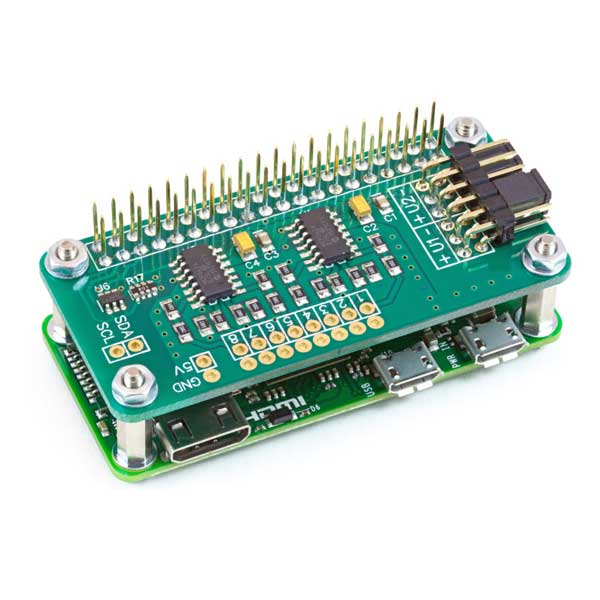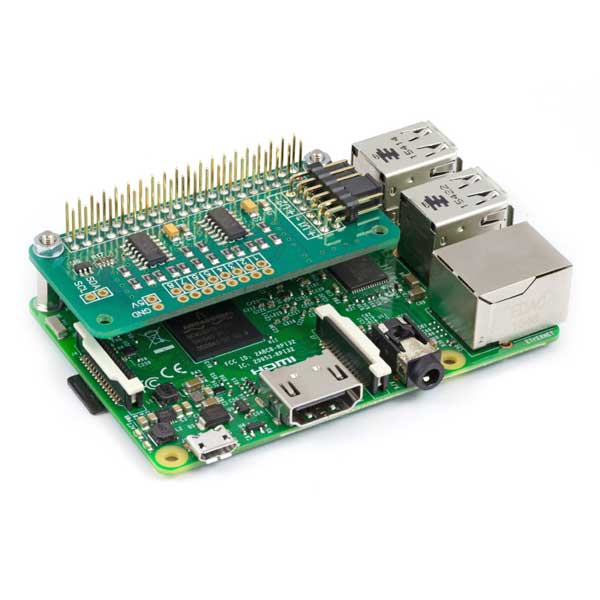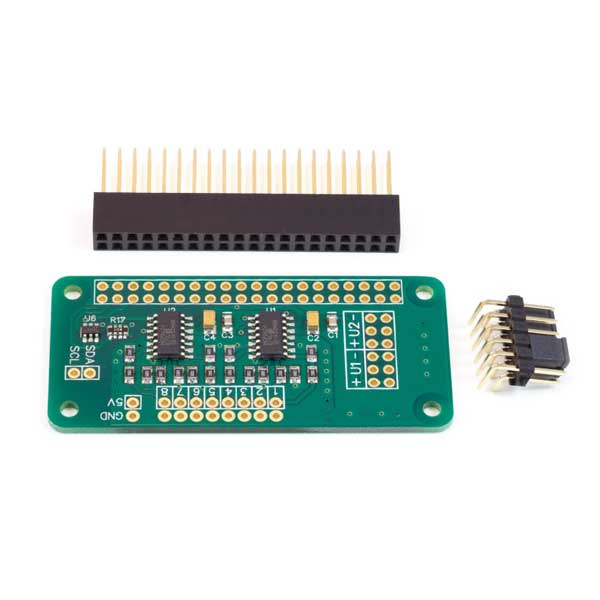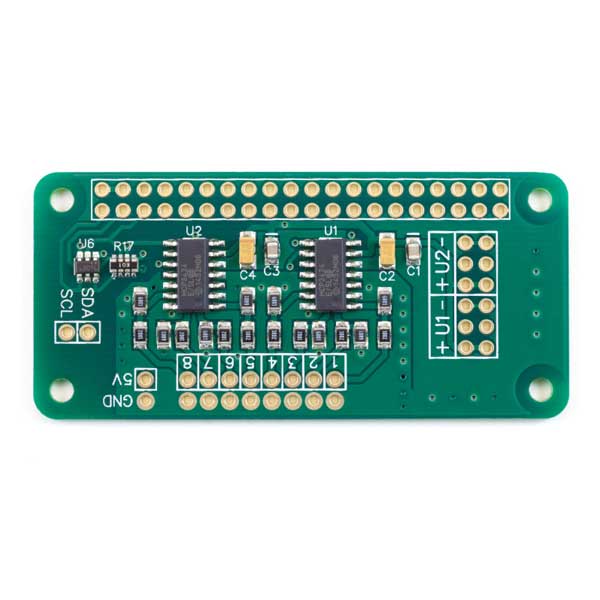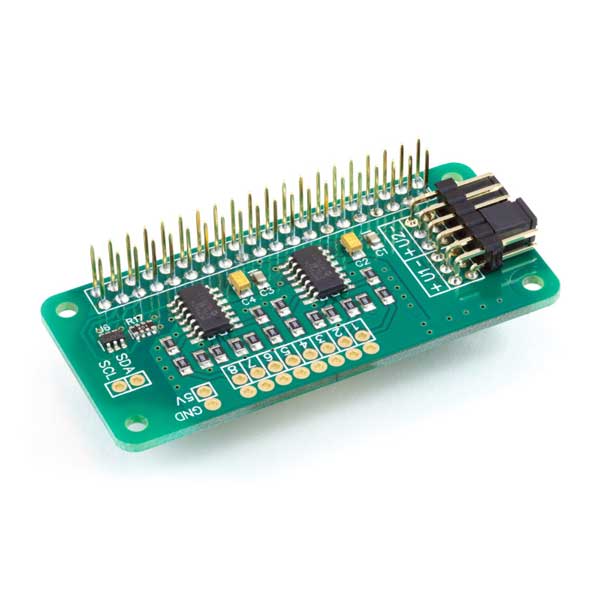
5184+ reviews
Order by 16:00 for same day shipping
14 days return
DE
EN
Individual
Business
ADC Pi

Description ADC Pi
The ADC Pi is an 8 channel 17 bit analog to digital converter designed to work with the Raspberry Pi . The ADC Pi is based on two Microchip MCP3424 A/D converters with 4 analog inputs each. The MCP3424 is a delta-sigma A/D converter with low-noise differential inputs.
The board can be used as a single-ended A/D converter. It uses the internal 2.048V reference voltage with the -V pins connected to Ground . A voltage divider on the ADC Pi board brings the input voltage range to a usable 0 - 5.06V . In this configuration the sample size is 17 bits for each channel.
The ADC Pi is powered by the Raspberry Pi using the GPIO pins or via the built-in power connector . The extended GPIO pins allow you to stack the ADC Pi with other expansion boards.
The two MCP3424 A/D converters communicate with the Raspberry Pi via I2C. This allows you to use 8 analog inputs. A logic level converter is built into the ADC Pi board. This gives you a buffered 5V I2C port. Thanks to the I2C port you can easily add other I2C devices that operate on 5V. The I2C buffer uses N-channel mosfets with a maximum drain current of 100mA .
The I2C address bits can be selected using the built-in jumpers. The MCP3424 supports up to 8 different I2C addresses. So with two A/D converters on each ADC Pi, you can stack up to 4 ADC Pi boards on a single Raspberry Pi . This gives you 32 ADC inputs.
The MCP3424 includes a programmable gain amplifier. This provides the user with a selectable gain of x1, x2, x4 or x8 before the analog to digital conversion takes place .
The data rate for analog to digital conversions is 3.75 (17 bit), 15 (15 bit), 60 (13 bit), or 240 (11 bit) samples per second . Data rate and resolution can be configured within software using the I2C interface.
ADC Pi
Sold out
€21.59
Order before 4:00 PM = shipped today
14 days free returns
SKU: AB1017 Categories: Raspberry Pi Accessories
Description ADC Pi
The ADC Pi is an 8 channel 17 bit analog to digital converter designed to work with the Raspberry Pi . The ADC Pi is based on two Microchip MCP3424 A/D converters with 4 analog inputs each. The MCP3424 is a delta-sigma A/D converter with low-noise differential inputs.
The board can be used as a single-ended A/D converter. It uses the internal 2.048V reference voltage with the -V pins connected to Ground . A voltage divider on the ADC Pi board brings the input voltage range to a usable 0 - 5.06V . In this configuration the sample size is 17 bits for each channel.
The ADC Pi is powered by the Raspberry Pi using the GPIO pins or via the built-in power connector . The extended GPIO pins allow you to stack the ADC Pi with other expansion boards.
The two MCP3424 A/D converters communicate with the Raspberry Pi via I2C. This allows you to use 8 analog inputs. A logic level converter is built into the ADC Pi board. This gives you a buffered 5V I2C port. Thanks to the I2C port you can easily add other I2C devices that operate on 5V. The I2C buffer uses N-channel mosfets with a maximum drain current of 100mA .
The I2C address bits can be selected using the built-in jumpers. The MCP3424 supports up to 8 different I2C addresses. So with two A/D converters on each ADC Pi, you can stack up to 4 ADC Pi boards on a single Raspberry Pi . This gives you 32 ADC inputs.
The MCP3424 includes a programmable gain amplifier. This provides the user with a selectable gain of x1, x2, x4 or x8 before the analog to digital conversion takes place .
The data rate for analog to digital conversions is 3.75 (17 bit), 15 (15 bit), 60 (13 bit), or 240 (11 bit) samples per second . Data rate and resolution can be configured within software using the I2C interface.
